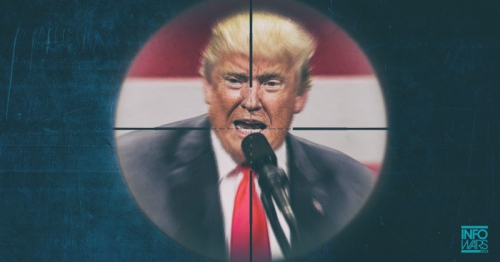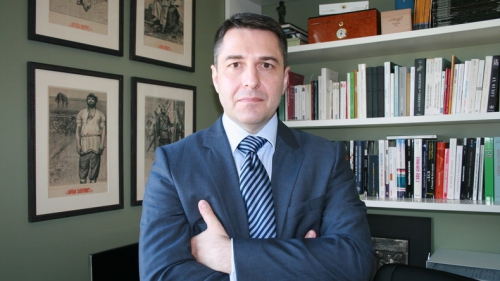Ex: http://www.elespiadigital.com
Enrique J. Refoyo
¿Quién puede pensar que hay alguna conexión entre el continente americano y el enorme espacio de la inmensa Siberia rusa? Hay conexión, conexión geopolítica, y de hecho está en la historia. Hagamos un repaso histórico rápido.
América en las guerras napoleónicas (1799-1815)
A principios del siglo XIX, en el contexto de las guerras napoleónicas, el territorio europeo de España se vio ocupado por el ejército francés de Napoleón. Durante los 6 años de la guerra en España contra las fuerzas napoleónicas (1808 – 1814), no hubo una guerra simplemente en el ámbito europeo, también hubo choques por todo el mundo. El imperio británico aprovechó esa oportunidad para su máximo beneficio, pues en vistas de que había caído la monarquía española lanzaron otro ataque en el continente americano contra el imperio español. Además el imperio británico había lanzado constantes ataques con piratería e invasiones frustradas contra la América española en los siglos XVII y XVIII. Así que desde el liderazgo británico, siendo bien conscientes de su posición geopolítica como potencia naval, sabían que para construir su poder, siempre lo han de levantar sobre la división de las potencias rivales, tanto terrestres como navales.
En este contexto, el imperio británico, en vistas de su incapacidad para invadir militarmente la España americana, pasaron a una guerra indirecta, cuya oportunidad vieron y aprovecharon durante la guerra en España anteriormente mencionada. Hay que recordar que los imperios español y francés, también se unieron a los revoltosos de las 13 colonias para debilitar la influencia británica en América, y desde luego, la eficacia de la acción quedó probada en las victorias militares y subsiguiente expulsión del imperio británico de las mismas 13 colonias fundadas por colonos ingleses. Si bien es cierto que también hubo precondiciones basadas en desigualdades legales y económicas de la metrópoli inglesa respecto a sus 13 colonias.
Los dirigentes británicos aprendieron bien de la lección que recibieron en su pérdida territorial a finales del siglo XVIII. De modo que, aprovechar oportunidades geopolíticas y hacer la guerra indirecta les parecieron buenos elementos a tener en cuenta, y así los usaron en su particular guerra geopolítica contra el imperio español. Por un lado, desde el imperio británico se aprovecharon de cualquier tipo de desigualdad o directamente aprovecharon la avaricia de las élites hispanas en América para crear división y motivos por los que rebelarse y declarar la independencia, todo ello en un momento histórico en que España carecía de gobierno ya que el rey Carlos IV y el príncipe heredero Fernando VII habían sido depuestos y llevados por la fuerza a Francia con la invasión napoleónica.
Así mismo, en el contexto de dicha guerra en España (1808 – 1814), el paso del ejército británico por España fue del todo devastador. Allá donde pasaban, no sólo procuraban expulsar a las tropas francesas, sino que también arrasaban toda la incipiente industria española, así como infraestructura civil y militar, e incluso incendiando deliberadamente ciudades y pueblos. Aquella guerra dejó tres lecciones en España:
- Carecer de buenos líderes propios siempre trae desgracias. Lo que Maquiavelo ya mencionaba en su dicotomía de Virtud y Fortuna: La virtud propia del príncipe en sus labores de gobierno y la fortuna de encontrarse con situaciones ventajosas. Un gobernante no-virtuoso arrastra inevitablemente el infortunio.
- Al hacer caso al liderazgo francés, España se vio invadida y sus líderes depuestos y secuestrados. Ergo, es muy importante tener una perspectiva geopolítica propia y activa, en vez de actuar de forma reactiva o pasiva, sumándose a las acciones de otros.
- La invasión inglesa del territorio español en la península ibérica supuso una manera encubierta de acabar con las capacidades económicas de la España europea, para que tras la derrota napoleónica, el siguiente dirigente de la monarquía española se encontrase con un país arrasado y por tanto debilitado, e incapaz -al máximo- para afrontar las situaciones militares en todo su imperio, que los mismos líderes británicos habían estado promoviendo durante las guerras napoleónicas.
¿A quién benefició la independencia de la América española?
Antes de continuar, es necesario echar un vistazo lejano en tiempo pero cercano en contenido ¿Conocen la historia de Viriato? Fue antiguo caudillo de diferentes tribus ibéricas a mediados del siglo II a.C, que tras vencer a los invasores romanos en todas las batallas, se cuenta que fue asesinado por 3 miembros de una tribu aliada de Viriato, los cuales habían recibido la promesa romana de recibir grandes riquezas, con tierras y otros privilegios a cambio de que asesinaran a Viriato. Cuando los 3 traidores asesinaron a Viriato y fueron ante los romanos para pedir la recompensa, lo que recibieron de los romanos fue: “Roma traditoribus non praemiat”, Roma no paga a traidores.
Regresando a la pregunta de este epígrafe, parece que tal pregunta se responde de manera sencilla, la independencia benefició a los americanos. Pero eso no es cierto. De un territorio unido, de repente apareció una decena de países, que a su vez nacieron entre inestabilidad interna y deudas con el banco de Inglaterra, ese banco propiedad de los Rothschild, que financió a los insurrectos americanos para que ‘supuestamente’ se liberasen del yugo español, pero en realidad, el siglo XIX se vio sembrado de numerosas y sangrientas guerras en esos nuevos países o entre ellos. Unas guerras que siempre iban unidas al sello -principalmente- del imperio británico, que a su vez, no deseaba que ningún nuevo Estado en América pudiera conseguir un poder geopolítico importante y rivalizador.
Como ejemplos, los tenemos por todo el continente americano: La disolución de la república centroamericana, la reducción al máximo de Méjico (pérdidas del norte entre 1836 y 1848), la división de la gran Colombia en tres países, el enfrentamiento entre Chile contra Perú y Bolivia, la división de Argentina mediante la creación de Uruguay, la invasión de la tripe alianza contra Paraguay, etc. Esos son ejemplos del significado geopolítico real que tenía la promoción de la independencia de los territorios imperiales españoles en América para los dirigentes del imperio británico, un simple y efectivo ‘Divide et impera’ (Divide y vencerás).
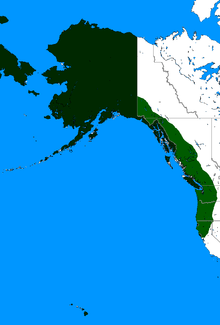 “El gran juego” del siglo XIX
“El gran juego” del siglo XIX
La lucha geopolítica entre el imperio ruso y el imperio británico durante el siglo XIX en Asia es conocida como “el gran juego”. Los líderes británicos, no sólo buscaron la contención, división, y supresión del poder español en América, también lo buscaron frente al imperio ruso, con el que incluso hacían frontera en el noroeste del continente americano (actual Alaska). De nuevo, los líderes británicos buscaron -en primer lugar- la contención del imperio ruso mediante la conquista o influencia territorial desde la que pudieran frenar el avance ruso desde los enormes territorios entre Europa y Asia. Y en segundo lugar, buscaron la hostilidad hacia Rusia, para poner a otras potencias regionales o mundiales contra el imperio ruso, y así presionarlo o incluso atacarlo, como sucedió en la guerra de Crimea (1853 – 1856), en que los imperios británico y francés se unieron al otomano para frenar el avance ruso por las costas orientales y occidentales del mar negro.
Algo que parecía imposible en el siglo XIX, una alianza entre los británicos y los rusos (y los franceses), se vio en la primera guerra mundial (1914 – 1918). Pero aquello sólo fue una alianza temporal ya que ambos imperios tenían un mismo enemigo en el pujante e industrial imperio alemán en Centroeuropa que además en aquella época contaba con colonias en África y Asia, las cuales proporcionaban grandes recursos a la industria alemana. Con la derrota del imperio ruso en la guerra (1917), y la posterior guerra civil (1918-1923) entre las facciones normalmente resumidas en rojos y blancos, se vio la naturaleza imperecedera de los dirigentes del imperio británico: No tienen aliados, sólo tienen intereses en función de la situación geopolítica.
Y así, de la mano de geógrafos políticos ingleses como Halford Mackinder, aparecieron los planes con las verdaderas intenciones hacia Rusia: Contener, dividir, y vencer. Mackinder propuso que en el marco de la debilidad rusa tras su derrota y guerra civil, se tenían que crear al menos 3 países para hacer un tapón entre Rusia y Europa: Bielorrusia, Ucrania y Transcaucasia. Así mismo, también proyectaron la creación de otro país más “Lenaland”, en la zona oriental de Siberia, entre la cuenca del río Lena y la costa del pacífico, para así aislar a Rusia de todos los mares importantes, dejándola reducida a unos pequeños enclaves marítimos siempre limitados por el paso a través del espacio marítimo de otros países, como en los mares báltico y negro que deben pasar entre territorio de Dinamarca-Suecia, y de Turquía respectivamente, quedándole a Rusia el acceso libre a mares árticos de escasa o nula utilidad. En este sentido, los enormes territorios rusos, principalmente la inmensa Siberia, son equiparables a la América hispánica, es decir, un inmenso territorio que le otorga una ventaja geopolítica inigualable al poder que lo mantenga. Dicha ventaja para rusos y españoles respectivamente, resultaba algo intolerable para el poder marítimo británico que nunca podría mantener una dominación global mientras que hubiera grandes potencias terrestres manteniendo extensos territorios.
“Divide et impera”, el axioma eterno
En este sentido, para los dirigentes británicos y posteriormente hasta la actualidad, para los dirigentes estadounidenses, Siberia en particular y Rusia en general, les parece ese territorio demasiado extenso como para que sólo lo tuviera un país, y por eso, siempre han actuado para contener, dividir y someter a cualquiera que gobierne en Rusia. La geopolítica no se trata de ideologías, se trata de conseguir y retener poder a nivel geográfico, por ello, tanto al imperio ruso, la unión soviética o la actual federación de Rusia, mantuvieron las mismas líneas geopolíticas. Y el imperio británico, posteriormente sustituido en importancia internacional por Estados Unidos en el siglo XX, también mantiene las mismas directrices en pos de contener, dividir y someter a cualquier potencia que pueda hacerles frente.
Es más, cuanto mayor sea la división que provoquen, mayor será su poder. Así se vio en América, que no fue una liberación frente a España, sino que era la pugna por conseguir la máxima división y enfrentamiento interno, para obtener un control más sencillo por parte del poder imperial británico. Los dirigentes de Estados Unidos han seguido la misma fórmula. Basta con ver lo sucedido en Yugoslavia desde 1990, con la serie de guerras que desembocaron en la máxima división y enfrentamiento de esos territorios para su uso geopolítico por Estados Unidos. La entonces Federación Socialista de Yugoslavia pretendió mantener una posición equidistante entre Este y Oeste, pero tal cosa fue imposible. Cuando cayó el lado soviético, y los líderes yugoslavos no quisieron seguir la vía de la ‘americanización’ que otros países del antiguo bloque soviético estaban realizando, entonces, Yugoslavia se vio asolada por la peor guerra europea desde 1945. De nuevo, cualquier división fue explotada externamente para crear una guerra brutal que acabase con un país que se creía geopolíticamente independiente, y ahora está convertido en 7 Estados, algunos más y otros menos dependientes de Estados Unidos o su sucursal de la Unión Europea.
Indigenismo “made in USA”
Actualmente, en diversos países iberoamericanos hay una nueva ideología conocida como “indigenismo”, con la que algunos dirigentes políticos pretenden reivindicar el pasado pre-hispánico a la par de una especie de unidad panamericana. Eso tiene tanto sentido como una ideología que pretendiese unir a todos los países mediterráneos con un idioma de origen romano mientras que odian a los romanos y reivindican un pasado pre-romano a la carta (quedándose con la tecnología moderna europea pero llenándolo todo de historias sobre los “buenos y pacíficos indígenas” frente a los “malvados invasores españoles”), ya que fueron los romanos precisamente quienes unificaron el área del mar mediterráneo, y en consecuencia, el elemento romano es la única línea continua entre los diferentes pueblos que conquistaron, al igual que el elemento hispánico es ese elemento común por encima de todas las diferencias. Además, los mismos creadores del indigenismo desde EEUU, defienden el mantenimiento de los supuestos “pueblos originarios” en América como un elemento de justicia, pero si son los Europeos quienes se defienden a sí mismos como pueblos originarios de Europa, tal cosa es racismo. Ahí se puede ver la mano del capitalismo globalizador, siempre creando desigualdades a favor de sus intereses.
Desde luego que los romanos hicieron su dominio por las armas, y desde luego que las tribus e imperios que conquistaron, también eran belicosos, y también se enfrentaban unos a otros, esta es la historia de absolutamente todo el mundo. Pero en Europa, no se duda de que el pasado romano, o en extensión, de que pasado greco-romano, es la base histórica de todos los países europeos. Pero en América, la base de esos países, que es el pasado hispánico, recibe todos los ataques posibles desde los creadores de ideologías de EEUU. Para los dirigentes de EEUU, como lo era para los dirigentes británicos, la división del continente americano entre muchos países enfrentados es una prioridad geopolítica. No pueden tolerar el surgimiento de ninguna potencia fuerte y con independencia en su “patio geopolítico”.
Y el indigenismo, fuera de todos los lemas y pancartas, representa ese elemento de continuación en la división y enfrentamiento interno más que de unidad, ya que ¿si no fuera en español y por la demás herencia hispánica, en qué idioma se comunicarían, y la unidad de qué cosa reclamarían los líderes supuestamente indigenistas americanos? Así mismo, ¿qué ocurriría en Washington DC, si de repente en Iberoamérica se reclamase la creación de un polo geopolítico propio y americano, sobre los fundamentos hispánicos comunes? De repente, se podría formar una enorme potencia de unos 600 millones de habitantes (el doble de EEUU), con inmensos recursos naturales con que sostenerse por sí misma de la guerra económica que les sobreviniera.
Conclusión
El pasado romano es a Europa lo mismo que el pasado hispánico es a América, su pasado que no volverá, porque sucedió en un momento histórico por una serie de circunstancias concretas e irrepetibles, pero siempre será la base fundamental que marque el devenir continental en el pasar de los siglos. Y como bien saben las élites dirigentes en el actual Estados Unidos, atacar el pasado de los pueblos mientras que se les inunda con una ‘cultura’ del materialismo, es la mejor forma que conocen los dirigentes estadounidenses para dominar países enteros.
Cualquier ínfima división o desigualdad será aprovechada por estas élites para crear una cuña desde la que introducirse allá donde marquen sus intereses. Y del mismo modo pueden recibir en el mismo Estados Unidos. Toda división o desigualdad, si es enorme o si se la exagera lo suficiente, puede ser un motivo de conflicto. La falta de liderazgo capacitado para entender las necesidades de su pueblo y las necesidades geopolíticas, estará más próximo al desastre.
Por otro lado, Siberia fue y sigue siendo esa gran región rusa, que existe precisamente por la mano de miles de rusos siglos atrás. Dicha área es una prioridad geopolítica de influencia y división para la potencia marítima estadounidense: Sin Siberia, Rusia perdería la salida directa al océano pacífico así como enormes y variadas cantidades de recursos naturales. Por eso desde EEUU están interesados en que haya fuerte emigración de población china a Siberia, para crear tensiones entre rusos, y chinos y mientras tanto, que el poder estadounidense vaya copando los medios de comunicación y también tal poder vaya cooptando a una élite siberiana fiel a los postulados estadounidenses. Con todo ello dispuesto para que, algún día concreto, los puedan activar y disparar en una revolución de color o guerra no-convencional contra el gobierno ruso.
Fuente: Katehon



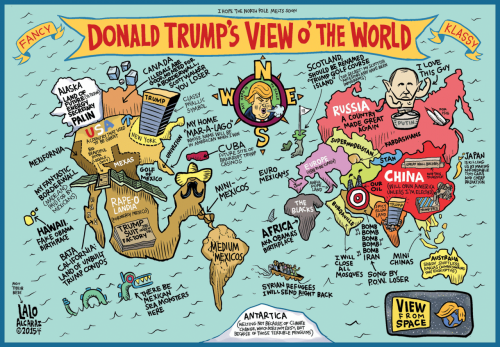

 del.icio.us
del.icio.us
 Digg
Digg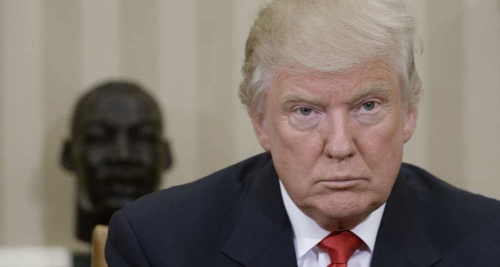
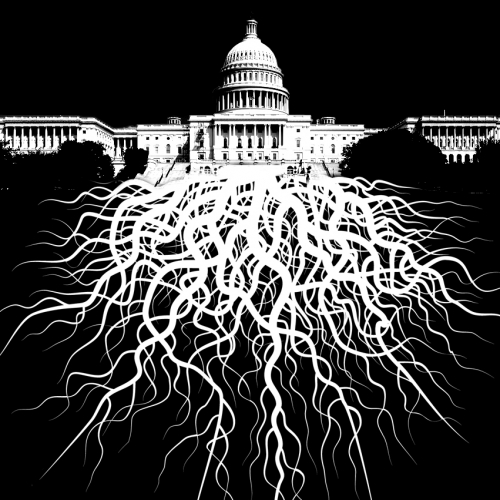



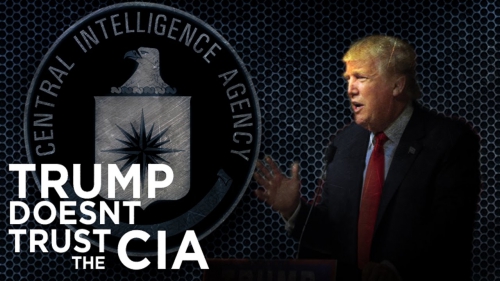
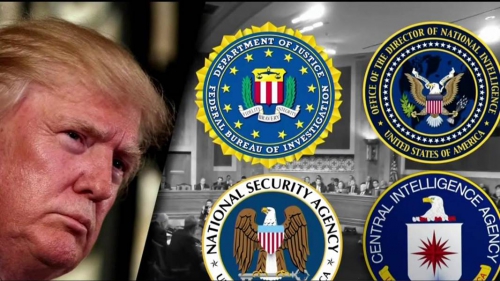



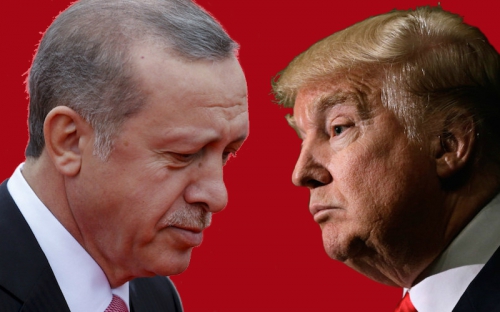

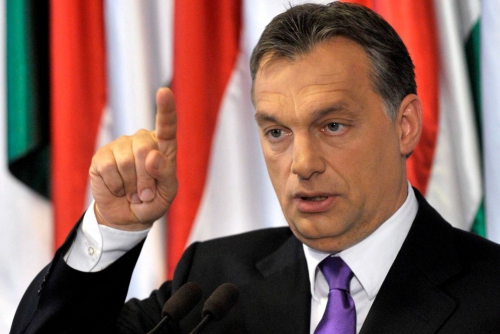

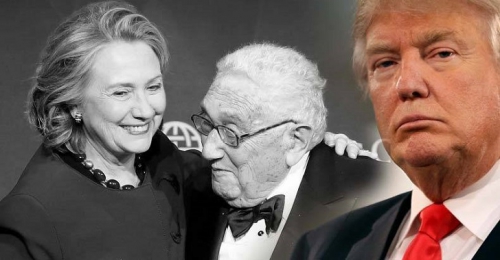


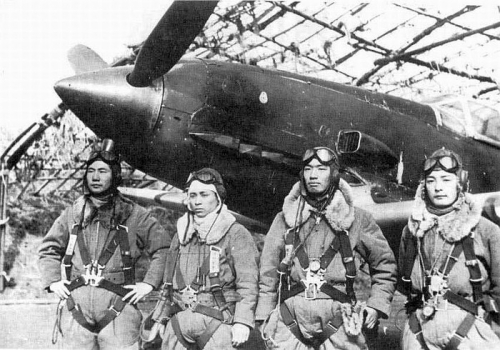
 Japan had a one-year strategic reserve of oil. Its stark choice was either run out of oil, fuel, and scrap steel over 12 months or go to war while it still had these resources. The only other potential source of oil for Japan was the distant Dutch East Indies, today Indonesia.
Japan had a one-year strategic reserve of oil. Its stark choice was either run out of oil, fuel, and scrap steel over 12 months or go to war while it still had these resources. The only other potential source of oil for Japan was the distant Dutch East Indies, today Indonesia.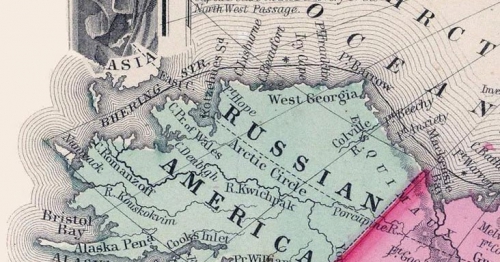



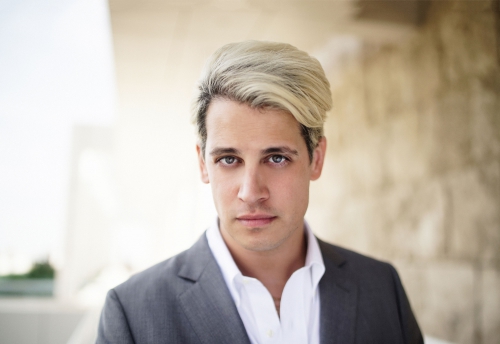
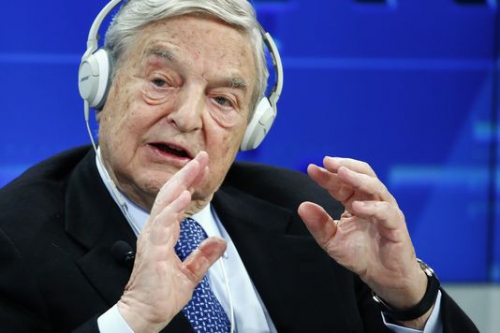
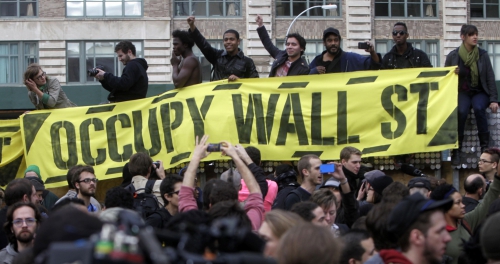
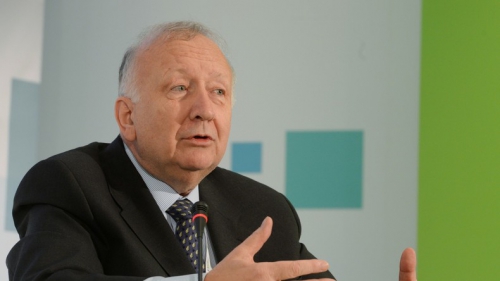
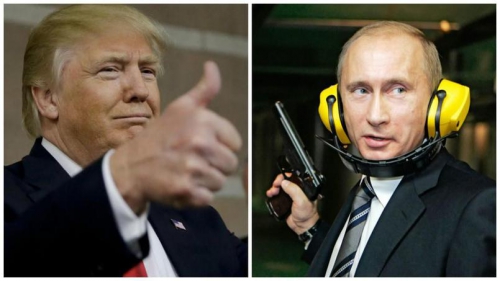

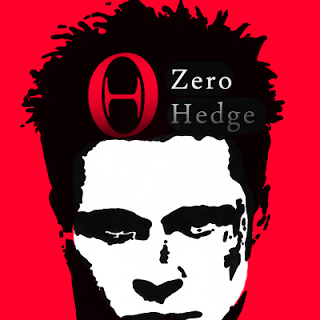 Que peuvent faire les médias habituels, sachant que toute remise en cause est exclue? La même tactique que d'habitude, essayer de salir les nouveaux venus de façon préventive. L'idée est que le grand public soit préparé à les haïr dès leur arrivée, afin qu'ils soient plus méprisés que regardés.
Que peuvent faire les médias habituels, sachant que toute remise en cause est exclue? La même tactique que d'habitude, essayer de salir les nouveaux venus de façon préventive. L'idée est que le grand public soit préparé à les haïr dès leur arrivée, afin qu'ils soient plus méprisés que regardés. Steve Bannon, le directeur exécutif de Breitbart News, a été récemment nommé directeur de la stratégie et conseiller du Président Trump par ce dernier. Pas possible donc de défausser le site comme le travail de ploucs illuminés sortis de nulle part.
Steve Bannon, le directeur exécutif de Breitbart News, a été récemment nommé directeur de la stratégie et conseiller du Président Trump par ce dernier. Pas possible donc de défausser le site comme le travail de ploucs illuminés sortis de nulle part.
